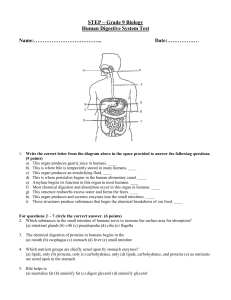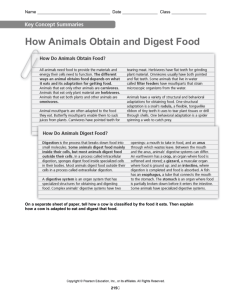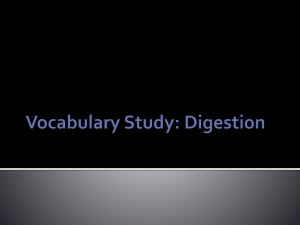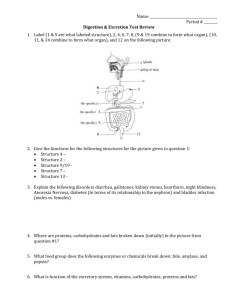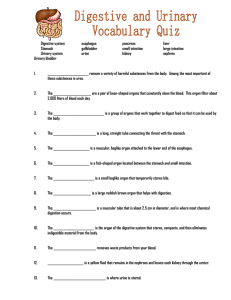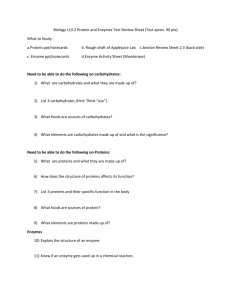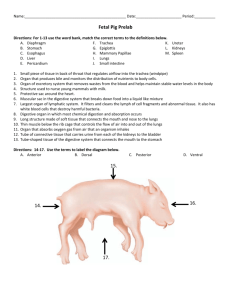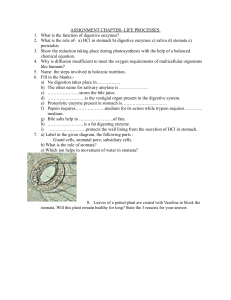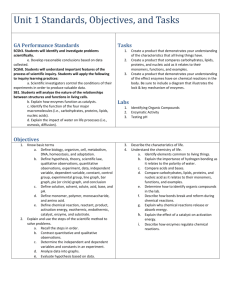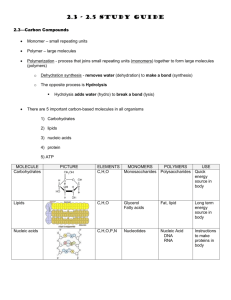Grade 9 Biology: Human Digestive System Test
advertisement
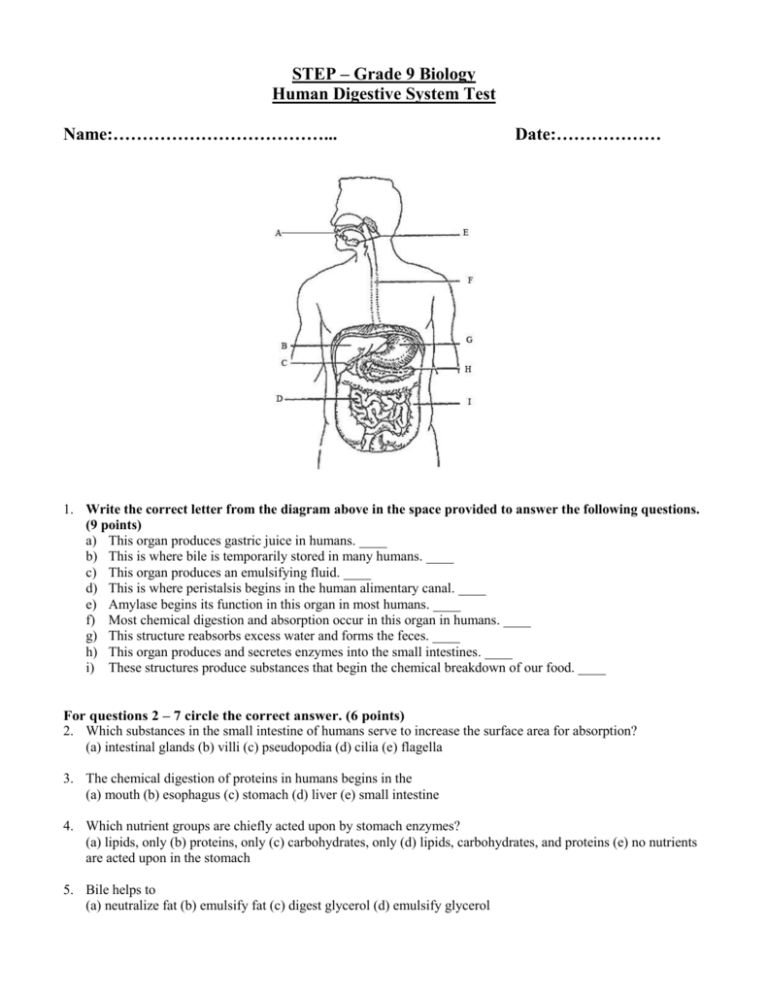
STEP – Grade 9 Biology Human Digestive System Test Name:………………………………... Date:……………… 1. Write the correct letter from the diagram above in the space provided to answer the following questions. (9 points) a) This organ produces gastric juice in humans. ____ b) This is where bile is temporarily stored in many humans. ____ c) This organ produces an emulsifying fluid. ____ d) This is where peristalsis begins in the human alimentary canal. ____ e) Amylase begins its function in this organ in most humans. ____ f) Most chemical digestion and absorption occur in this organ in humans. ____ g) This structure reabsorbs excess water and forms the feces. ____ h) This organ produces and secretes enzymes into the small intestines. ____ i) These structures produce substances that begin the chemical breakdown of our food. ____ For questions 2 – 7 circle the correct answer. (6 points) 2. Which substances in the small intestine of humans serve to increase the surface area for absorption? (a) intestinal glands (b) villi (c) pseudopodia (d) cilia (e) flagella 3. The chemical digestion of proteins in humans begins in the (a) mouth (b) esophagus (c) stomach (d) liver (e) small intestine 4. Which nutrient groups are chiefly acted upon by stomach enzymes? (a) lipids, only (b) proteins, only (c) carbohydrates, only (d) lipids, carbohydrates, and proteins (e) no nutrients are acted upon in the stomach 5. Bile helps to (a) neutralize fat (b) emulsify fat (c) digest glycerol (d) emulsify glycerol 6. Feces is usually about 40 percent water and 60 percent solid matter Reducing the water content to 20 percent would most likely result in (a) constipation (b) diarrhea (c) gallstones (d) ulcers 7. Which foods should be included in a balanced diet as a good source of roughage? (a) red meat and poultry (b) fresh fruits and vegetables (c) eggs and milk products (d) animal fat and plant oils Short or one word answers are required for questions 8 – 11. (4 points) 8. What is the purpose of the digestive system? ____________________________________________________________________________________ ______________________________________________________________________ 9. How does saliva begin digestion? ____________________________________________________________________________________ ______________________________________________________________________ 10. Where in the digestive system are soluble substances absorbed into the bloodstream? ________________________________ 11. What happens to the food that cannot be digested? ____________________________________________________________________________________ ______________________________________________________________________ 12. Fill in the following table (11 points) Enzymes Produced in Carbohydrase (enzyme that 1. digest carbohydrates) 2. Protease (enzyme that 1. digest proteins) 2. Lipase (enzyme that digest 1. Breakdown ..................... into………..... fats and oils) (Total 30 points) Please look over your work carefully before you hand in your paper.
